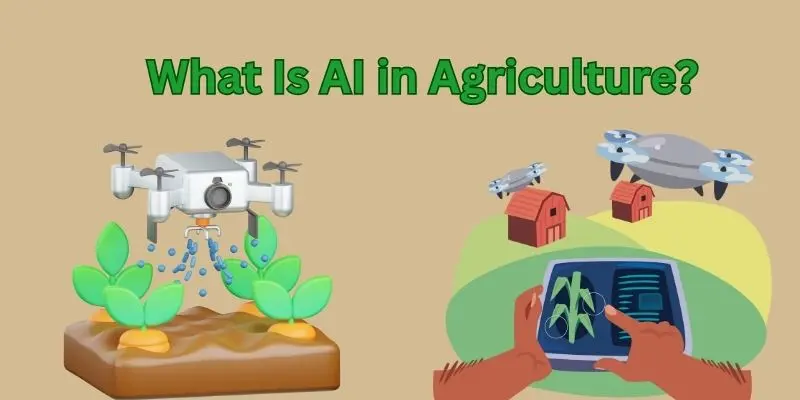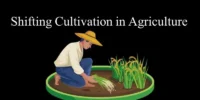Artificial Intelligence for Farming. The Future of Smart, And Efficient, Agriculture
Published: 21 Jun 2025
The content highlights how artificial intelligence (AI) is revolutionizing farming through smart technologies like precision agriculture, crop monitoring, automated irrigation, and predictive analytics. AI helps farmers make better decisions by analyzing data on soil, weather, pests, and crop health in real time. It reduces waste, boosts yields, and promotes sustainable farming practices. Understanding these AI applications is crucial as they shape the future of food production, making agriculture more efficient, cost-effective, and environmentally friendly for a growing global population.
So, guys, without wasting time, let’s jump into the article to learn “Artificial Intelligence for Farming: The Future of Smart, Efficient, and Sustainable Agriculture
- Traditional farming methods are struggling against modern challenges:
- Unpredictable weather
- Labor shortages
- Water and soil depletion
- Rising costs of fertilizer and fuel
- Artificial Intelligence (AI) is not just tech hype — it’s helping real farmers work smarter, not harder
- Emotionally connect: “Imagine a farmer waking up and knowing exactly which crops need water today — without stepping into the field.”
2. What Is AI in Agriculture?
- AI is the ability of machines to learn from data and make intelligent decisions
- In agriculture, AI learns from:
- Weather patterns
- Soil data
- Plant health images
- Satellite and drone imagery
- Then it gives:
- Real-time recommendations
- Early problem detection
- Automated actions (like irrigation or pest alerts)

3. Real-World Uses of AI in Farming
- Drones + AI for crop health monitoring
- Scan large fields in minutes
- Detect stressed or diseased plants
- Mobile apps with AI for plant disease detection
- Example: Take a photo → app tells the issue & solution
- Smart irrigation with AI-controlled moisture sensors
- Prevents overwatering or underwatering
- Yield prediction models using AI
- Helps with crop planning, storage & selling
- AI weather forecasting tools
- Provide ultra-local predictions for better decisions
4. Benefits of Using AI in Farming
- Reduces cost of water, pesticides & fertilizers
- Increases crop yield and quality
- Boosts early detection of pests/diseases
- Improves harvest timing & post-harvest handling
- Gives small farmers a competitive edge
- Reduces manual labor burden
5. Problems Farmers Face Without AI
- Guessing weather = crop damage
- Over-fertilizing = wasted money & poor soil health
- Late detection of pests = yield loss
- Rising input costs with no data to optimize usage
- Shortage of skilled labor in remote areas
6. Top AI Tools Farmers Are Using Today
- Plantix – Diagnose crop diseases from images
- Taranis – Drone + satellite image analysis for field scouting
- IBM Watson Decision Platform – Weather + soil + crop prediction
- John Deere Operations Center – AI-guided equipment and decisions
- Agremo – AI maps to detect gaps, stress, and nutrient issues
- The Climate Corporation – Hyperlocal weather + farming data

7. Is AI Only for Big Farmers? No!
- Prices of smart tools are falling
- Many AI apps work on basic smartphones
- NGOs and agri-startups now offer AI-as-a-servi
- Students and small farmers are already using free/cheap AI tools
- Start with 1 thing — like soil moisture alerts — and grow from there
8. How AI Helps Build a Sustainable Future
- Uses feduces water wastage
- Cuts emissions from excessive machinery use
- Helps maintain long-term soil health
- Supports climate-smart farming in the face of rising global food demand
“The next agricultural revolution is not mechanical — it’s digital.”
9. How to Get Started with AI in Farming (Step-by-Step)
- Start with free AI apps for disease detection
- Try a smart sensor kit (start with soil moisture)
- Use drone service providers for basic mapping
- Follow YouTube/TikTok agri-tech explainers
- Connect with local agri-innovation hubs (incubators, NGOs, etc.)
- Subscribe to platforms like TheAgriTec for updates & guides
FAQs about Artificial Intelligence for Farming. The Future of Smart, Efficient, and Sustainable Agriculture
Here are some of the most frequently asked questions about the he Future of Smart, Efficient, and Sustainable Agriculture
No, AI in farming doesn’t mean robots walking around. It usually works through apps, sensors, and machines that think smartly — like telling you when to water or how healthy your crops are.
Some AI tools need internet, like weather-based apps or disease detection tools. But many can work offline or sync when connected — especially if designed for remote farms.
Yes! Some AI apps can detect disease early just by analyzing a photo of your plant. It compares symptoms with thousands of examples to give you quick advice.
Not always. Many AI tools are free or low-cost, especially mobile apps or affordable sensors. Some governments and agri-startups also offer support or shared services.
Absolutely not. AI supports farmers — it doesn’t replace them. It helps you make better decisions but still needs a human to act and supervise.
No, AI is for everyone. Small farmers can use simple tools like weather prediction, pest alerts, or smart irrigation — all based on AI.
10.Final Thought
The content highlights how artificial intelligence (AI) is revolutionizing farming through smart technologies like precision agriculture, crop monitoring, automated irrigation, and predictive analytics. AI helps farmers make better decisions by analyzing data on soil, weather, pests, and crop health in real time. It reduces waste, boosts yields, and promotes sustainable farming practices. Understanding these AI applications is crucial as they shape the future of food production, making agriculture more efficient, cost-effective, and environmentally friendly for a growing global population.

- Be Respectful
- Stay Relevant
- Stay Positive
- True Feedback
- Encourage Discussion
- Avoid Spamming
- No Fake News
- Don't Copy-Paste
- No Personal Attacks

- Be Respectful
- Stay Relevant
- Stay Positive
- True Feedback
- Encourage Discussion
- Avoid Spamming
- No Fake News
- Don't Copy-Paste
- No Personal Attacks





